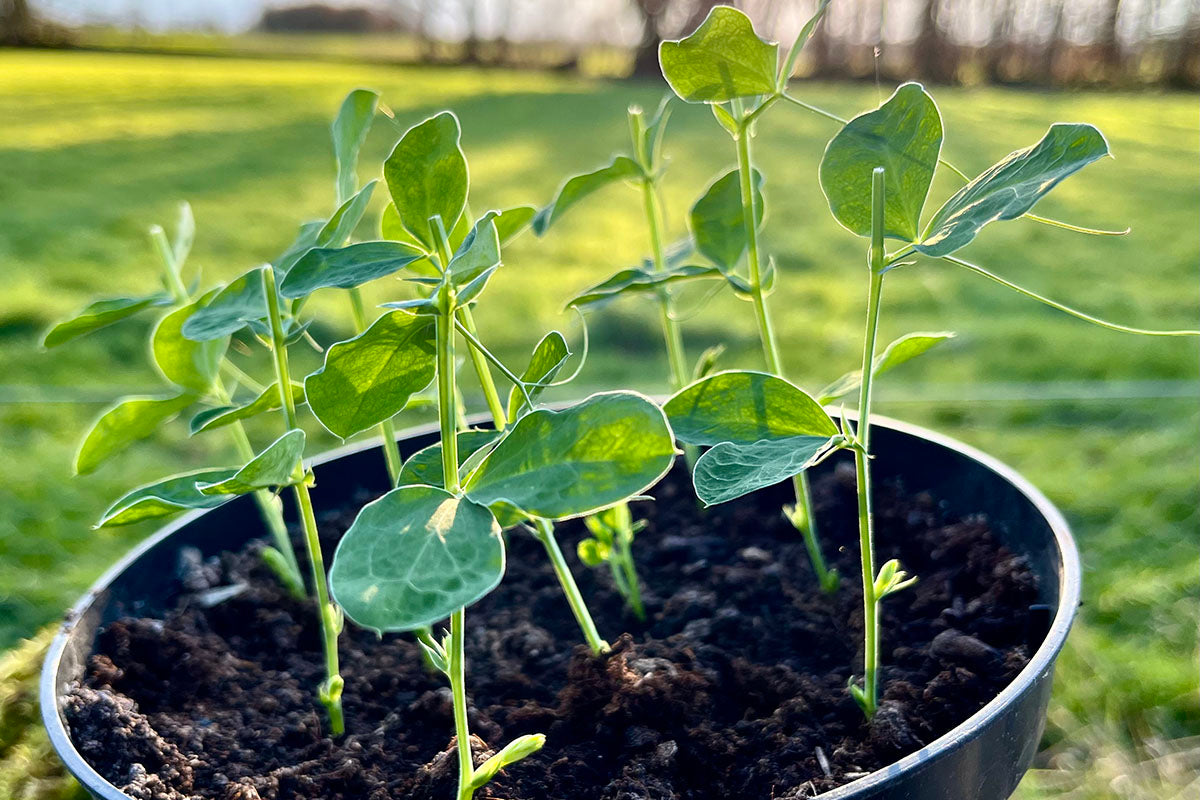Pinch and punch

With the first day of December just gone, it would be traditional to say “a pinch and punch, first day of the month” to any friend we might have encountered in the morning, followed up with a friendly pinch and a light punch to the arm. The origin of this saying appears to hark back several centuries when the existence of a village witch was something of concern. A pinch of salt would weaken the powers of any witch if thrown over them, while the punch would banish them for good.
American readers across the pond may prefer the explanation that suggests George Washington would meet native Americans on the first day of each month supplying them with fruit punch with an added pinch of salt. Whatever the tradition, we prefer not to go around assaulting our friends should they visit the Genus garden at the start of every month.
One tradition we do adhere to is the pinching out of our sweet peas. Several months ago we sowed four different varieties. Cupani,a beautiful old variety dating back to 1699 has let us down with no germination taking place. The other three, ‘Cannes’, ‘Marseilles, and a mixed packet were far better behaved and have put on plenty of growth in the greenhouse despite the recent cool weather. What we don’t want them to do is put on too much growth at this time of year. Pinching out the top few inches (pictured) will cause the plant to create side shoots that will lead to more flowers next year. It will also prevent the plants from becoming a tangled mass as they grow, their tendrils causing them to be locked together in an inextricable hug.











